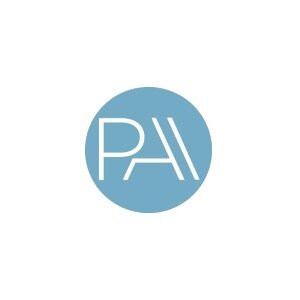Best Accidents & Injuries Lawyers in Oslo
Share your needs with us, get contacted by law firms.
Free. Takes 2 min.
List of the best lawyers in Oslo, Norway
About Accidents & Injuries Law in Oslo, Norway
Accidents and injuries law in Oslo, Norway, deals with the legal ramifications and rights of individuals who have suffered harm due to various incidents. These can range from road traffic accidents and workplace injuries to medical malpractice and product liability cases. The objective is to ensure that victims receive appropriate compensation for their injuries and losses, and to hold those responsible accountable.
Why You May Need a Lawyer
Legal assistance may be required in various situations, such as:
- Traffic Accidents: Securing compensation for medical expenses, vehicle repair costs, and loss of income.
- Workplace Injuries: Ensuring that your rights are protected if you are injured at work, including claims for compensation and benefits.
- Medical Malpractice: If you have been harmed due to a medical professional's negligence, a lawyer can help hold the responsible parties accountable.
- Product Liability: Receiving compensation for injuries caused by defective or dangerous products.
- Public Liability: Claims related to injuries sustained in public spaces due to negligence, such as slips, trips, and falls.
Local Laws Overview
Norwegian law regarding accidents and injuries is primarily governed by:
- Loveloven (The Damages Act): This governs compensation for damages caused by accidents.
- Arbeidsmiljøloven (The Working Environment Act): Ensures workplace safety and outlines employer responsibilities in case of workplace injuries.
- Bilansvarsloven (The Automobile Liability Act): Covers liability and compensation for traffic accidents.
- Pasientskadeloven (The Patient Injury Act): Provides guidelines for compensation related to medical malpractice.
Understanding these laws can be complex, and legal advice can help navigate the intricacies of your specific case.
Frequently Asked Questions
1. What should I do immediately after an accident?
Seek medical attention, report the incident to the relevant authorities, gather evidence (photos, witness contact details), and inform your insurance company or employer if applicable.
2. How long do I have to file a claim?
The statute of limitations for filing a claim varies depending on the type of accident. Generally, it ranges from 2 to 5 years. Consulting with a lawyer can provide precise guidance based on your case.
3. Can I handle an accident claim on my own?
While it's possible, having a lawyer can significantly improve the likelihood of a favorable outcome by navigating legal complexities and negotiations effectively.
4. What compensation can I expect?
Compensation can include medical expenses, lost wages, pain and suffering, and other related costs. The amount varies based on the severity of injuries and the impact on your life.
5. How do I prove negligence in an accident claim?
Proving negligence usually requires evidence that the other party breached their duty of care, directly causing your injuries. This can involve witness testimonies, expert opinions, and documentation.
6. What if the accident was partly my fault?
Norway follows a comparative negligence rule, meaning you can still recover compensation even if you are partially at fault. Your compensation may be reduced proportionally to your degree of fault.
7. Can I claim for psychological injuries?
Yes, psychological injuries such as PTSD or anxiety resulting from an accident are compensable. Proper medical documentation is necessary to support such a claim.
8. Is there any financial aid for legal fees?
Some legal aid schemes exist for individuals with lower incomes. Additionally, many lawyers offer a no-win, no-fee structure, allowing you to pay only if your claim is successful.
9. Do I need to go to court?
Not necessarily. Many claims are settled out of court through negotiations. However, if a fair settlement can't be reached, your case might go to court.
10. How long does it take to resolve a claim?
The time frame can vary widely depending on case complexity, cooperation of the involved parties, and court schedules. Some claims can be settled in months, while others may take years.
Additional Resources
Consider reaching out to the following organizations for further assistance:
- Norsk Pasientskadeerstatning (NPE): For issues related to medical malpractice.
- Arbeidstilsynet: The Norwegian Labour Inspection Authority for workplace-related accidents.
- Trygg Trafikk: An organization focused on road traffic safety and assistance.
- Forbrukerrådet: The Norwegian Consumer Council for product liability cases.
Next Steps
If you find yourself needing legal assistance for an accident or injury, consider taking the following actions:
- Document Everything: Keep a detailed record of the accident, injuries, medical treatments, and any communication regarding the incident.
- Consult a Lawyer: Contact a legal professional specializing in accidents and injuries to evaluate your case and guide you through the process.
- Negotiate with Insurance Companies: Often, initial claims are handled through insurance providers. Having a lawyer can ensure you're not settling for less than you deserve.
- Follow Legal Advice: Your lawyer will advise you on the best course of action, whether it's negotiating a settlement or preparing for court.
- Stay Informed: Continuously educate yourself about your rights and the progress of your case to make well-informed decisions.
Taking these steps can help ensure that your rights are protected, and you receive the compensation you deserve.
"""Lawzana helps you find the best lawyers and law firms in Oslo through a curated and pre-screened list of qualified legal professionals. Our platform offers rankings and detailed profiles of attorneys and law firms, allowing you to compare based on practice areas, including Accidents & Injuries, experience, and client feedback.
Each profile includes a description of the firm's areas of practice, client reviews, team members and partners, year of establishment, spoken languages, office locations, contact information, social media presence, and any published articles or resources. Most firms on our platform speak English and are experienced in both local and international legal matters.
Get a quote from top-rated law firms in Oslo, Norway — quickly, securely, and without unnecessary hassle.
Disclaimer:
The information provided on this page is for general informational purposes only and does not constitute legal advice. While we strive to ensure the accuracy and relevance of the content, legal information may change over time, and interpretations of the law can vary. You should always consult with a qualified legal professional for advice specific to your situation.
We disclaim all liability for actions taken or not taken based on the content of this page. If you believe any information is incorrect or outdated, please contact us, and we will review and update it where appropriate.
Browse accidents & injuries law firms by service in Oslo, Norway
Oslo, Norway Attorneys in related practice areas.














